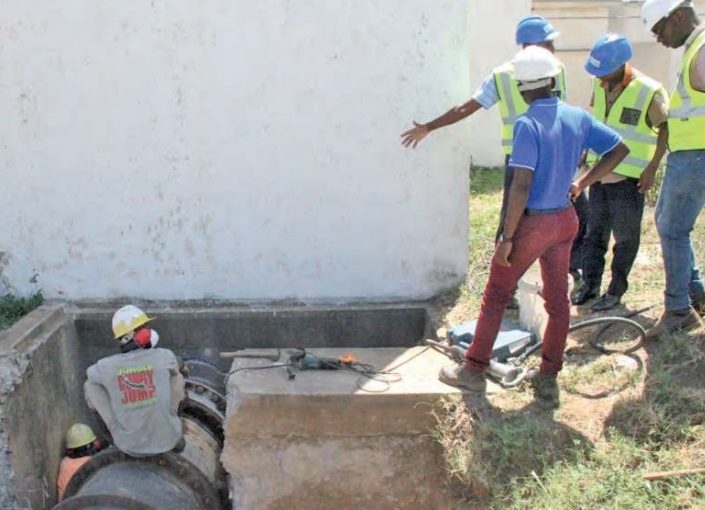Mozambique: In the ruins of PIDE's terror, shoemaker Celestino is the only one bringing life to ...
Niassa: Water crisis looms in Lichinga – Noticias

Photo: Noticias
Lichinga, the capital of Niassa province, with around 242,000 thousand inhabitants, is on the verge of a water shortage until the next rainy season because of reduced levels in the Locumue dam, caused by the irregular rainfall.
The Water Supply Investment and Participation Fund (FIPAG) estimates at around US$100 million the investments necessary to minimise the negative impact of water scarcity in the city and its surroundings.
This amount could fund the dam construction and expansion works currently at a standstill, and finance a new dam in Mbahú, 40 kilometres from the city. The amount would also cover the construction of two water treatment plants, a water main, two capture systems and a water distribution network.
These initiatives would raise supply to 45,000 cubic metres of water per day and supply 20,000 new domestic consumers by 2030.
Water supply would extend to 20 hours/day (from the current circa 12 hours) and provide a coverage rate of 80% of the population, while at the same time reducing losses and operational costs.
Eugénio Matsinhe, FIPAG delegate for the city of Lichinga, says that the Locumue reservoir has a capacity of 1.7 million cubic metres of water, but at the moment maximum levels of filling are estimated at 0.95 million cubic metres, corresponding to around 56% capacity
With water levels declining, supply could reduce from 4500 cubic metres/day to 3500, and distribution hours may be restricted in order to guarantee water to consumers.
Residents of the Chiulucuto, Namacula, Sanjala and part of Niassa 1 and 23 de Setembro neighbourhoods – about 19.7 percent of Lichinga’s 68,163 water consumers – are worst affected.
To minimise the difficulties of accessing water, Matsinhe said that FIPAG would deploy tanker trucks to ensure the distribution of water in critical neighbourhoods.
Additionally, a dozen 10,000-litre plastic tanks had been placed in critical neighbourhoods. “We are going to capitalise on the mechanical bore holes, replacing hand pumps with electro pumps in the system’s service area,” he said.
The Minister of Public Works, Housing and Water Resources, Carlos Mesquita, who was working in Niassa province from last Saturday until yesterday, appealed to FIPAG to make efforts to reduce the levels of water loss from the distribution system.
Almost half of the water produced is lost to leaks in the distribution network, which is often vandalised by residents who do not have official access to it.












Leave a Reply
Be the First to Comment!
You must be logged in to post a comment.
You must be logged in to post a comment.